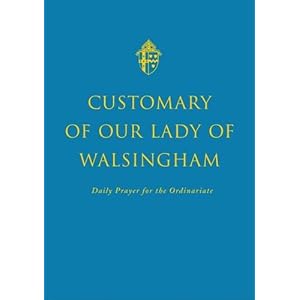A few words now about recognizing elements of Anglican Patrimony. But first we need to set the stage by acknowledging the contributions of Anglo-Catholics and especially those who have been identified as Anglo-Papists (or Anglo-Papalists).
Allow me to quote from A Tactful God by Simon Bailey (Gracewing, 1995) a biography of Dom Gregory Dix, an Anglican Benedictine monk of Nashdom Abbey in the UK. Dix is perhaps the best know Anglo-Papist whose work, especially The Shape of the Liturgy has been studied now by generations of Catholics to the present day. Bailey writes:
"His life would be in the Church of England, his life and work and prayer would be for unity, for greater and deeper catholicity, for ways and paths and new routes through the mountains of Anglican indifference, ignorance and hostility and of Roman superiority, isolation and lack of interest." p. 50 -- Now that is a worthy patrimony in itself.
In the spirit of Dom Gregory we look then at such matters as liturgy, ordination and the value of ordained service to God in the Anglican tradition as these patrimonial elements are now being received into the full communion of the Catholic Church.
To begin with we look again at the shape of liturgy and what elements of Anglican use are being incorporated into the Anglican Use of the Roman Rite being prepared for approval by the Holy See.
Secondly, but related to the liturgy, we look at the value and recognition of the ministry of Anglicans being received into the full communion of the Catholic Church, what they bring and how they are received with honour.
Dom Gregory Dix as a lifelong Anglican usually celebrated the Tridentine Rite (Latin) Mass as his daily celebration but he conformed for Sundays and Feast Days to the rites used within the community or parish where he served - - and these varied.
Dom Gregory could live as an Anglican, as have so many, without the Book of Common Prayer and in a community which used the Tridentine liturgy along with other liturgical forms which belong to the Western (Latin) Church of which they understood themselves, as many still do, to be members of by virtue of Baptism (and Confirmation -- pace Dix).
The issue of Orders as defined by Rome was clearly a concern for Dix and it would be interesting to see how he would view the obvious recognition of past Anglican ministry implicit in the designation of former Anglican bishops as monsignori in the ordinariates (an honour recognizing long service in the ordained ministry usually of 20 years or more).
The notion that those many priests and parishes in the East End of London and similar places around the world did not use explicitly Catholic liturgies for Mass with episcopal permission, as some have claimed in recent postings, is simply not the case. Bishops would often preside at non-BCP liturgies e.g. from the English/Anglican Missal (though, of course some would not).
The many Anglican bishops have (and continue to) give implicit permission for the celebration of rites for Mass which are in complete conformity with the requirements of the Holy See. Given the welter of Anglican views on jurisdiction, the permission of a local bishop is all that is necessary in the eyes of Anglo-Papists to validate their recourse to the Roman Rite of the Western Church. In fact, most have believed that local permission is advisable but not necessary since their recognition of the Holy See and its mandates for liturgy come under the immediate jurisdiction of the Holy Father.
Make of this what you will, this is how many priests and parishes have proceeded for decades and in some cases with highly effective and fruitful ministries which are now recognized personally by the Holy Father in the making of individual former bishops prelates of honour thus representing the hundreds of faithful Anglo-Papists who laboured to lay the groundwork for Anglicanorum Coetibus.
In light of the recent discernment with regard to Anglican Use in the Ordinariates Msgr Steenson has rightly, in my view, determined that the EF in its current form is not part of the Anglican Patrimony since the English Missal tradition has translated and adapted the precursor of the current EF for Anglican use in English.
As others have pointed out, however, there is nothing to stop an individual priest or an interested group in an Ordinariate from celebrating the EF on occasion and for particular purposes outside of weekly Sunday Mass which in an AU/Ordinariate parish or sodality should properly be the Anglican Use of the Roman Rite as approved by the CDF.
EF rites are available to AU/Ordinariate priests and people in these circumstances just as they are to other priests of the Roman Rite. Msgr Steenson, to my understanding, has forbidden nothing in this regard.
In summary, the Anglican Use of the Roman Rite (AU) as being developed for approval will share in the universal character of the Mass and other rites. The AU will properly express doctrine in this regard. It will also incorporate elements of Anglican Patrimony in terms of sacral English language for ritual and biblical texts and the Anglican musical and choral traditions as they have developed over the past centuries as distinct from but complementary to other musical and ritual traditions.
All of this development and sharing is an articulated goal of the Holy Father for the mutual enrichment of communities gathered together in the Catholic Church.





